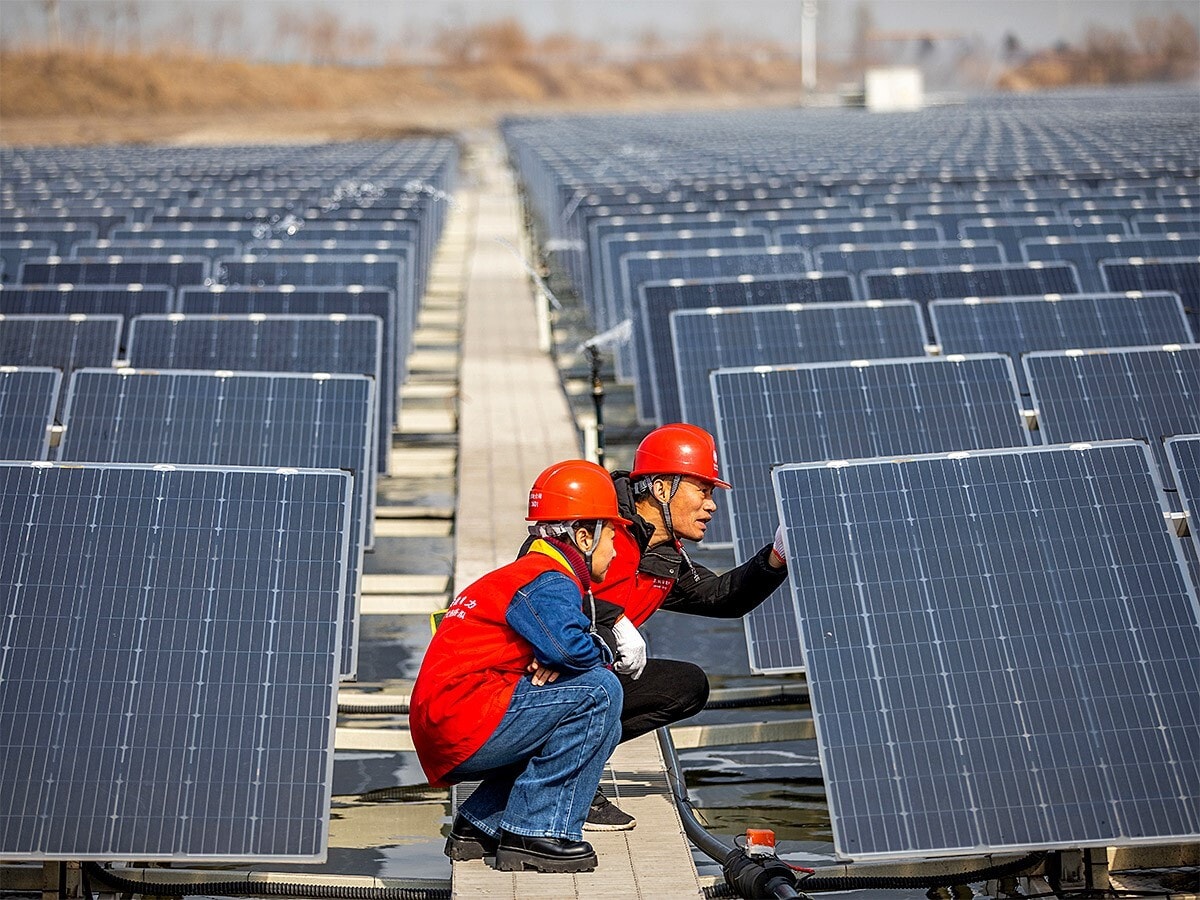Russia’s invasion of Ukraine has led to steep losses across global stock markets, but renewable energy stocks have been rising as investors mull the need for alternative energy sources.
The European Renewable Energy Index [ERIX] rose as much as 9.3% on 24 February, the largest leap since the pandemic lows of March 2020, presenting a stark contrast to the European market’s collapse. At the close on 10 March the iShares Clean Energy ETF [ICLN] and the Invesco Global Clean Energy ETF [PBD] were up by 19.7% and 15.6%, respectively, since the day Russia invaded Ukraine.
First Solar share price on the increase
The Russia-Ukraine tensions have pushed US solar stocks higher, with the First Solar [FSLR] share price up 17.9% since 24 February at the close on 10 March.
Despite renewed investor interest in alternative energy stocks, this did not stop First Solar shares sinking by more than 16% during trading on 1 March after it reported missed revenue expectations in the fourth quarter and issued weak full-year guidance.
The solar panel manufacturer generated fourth-quarter revenue of $907m, falling short of analyst forecasts of $918m, but its earnings per share came in at $1.23, exceeding the consensus estimate of $1.06.
First Solar’s full-year guidance also missed Wall Street expectations, however. The company expects revenue between $2.4bn and $2.6bn, while analysts were forecasting $2.76bn.
Mark Widmar, CEO of First Solar, said the solar manufacturing industry faced a year of “supply chain, logistics, cost and pandemic-related challenges”. Yet, he was optimistic about the year ahead, calling 2022 a “pivotal year” with “significant investment” on the horizon.
Siemens Energy takes a hit
The Siemens Energy [ENR.DE] share price soared by 14.6% between 24 February and 1 March, but this rally was short lived as reality set in for investors.
Siemens Energy is the majority shareholder of Siemens Gamesa, one of the world’s largest manufacturers of offshore wind turbines, which has suffered from supply chain issues that have hit several industries. It has also experienced problems with its new 5X onshore turbine, prompting three profit warnings in the space of nine months.
To accelerate the turnaround, Siemens Energy board member Jochen Eickholt is taking over as Siemens Gamesa’s CEO this month, in the latest sign that the German parent group aims to exert more influence.
Sources told Reuters in January that Siemens Energy was stepping up efforts to buy the remainder of Siemens Gamesa, which analysts say would give the level of control it needs to speed up changes, but this has not been confirmed by either company yet.
EV stock prices also rose amid geopolitical tensions
ChargePoint [CHPT] stock has jumped 40.2% since 24 February, despite the firm releasing mixed fourth-quarter earnings last Thursday. The US-based electric vehicle infrastructure company beat revenue estimates but fell short on earnings, though its full-year 2023 guidance of $450m–500m exceeded consensus expectations of $380m.
Analysts remain bullish on ChargePoint’s long-term prospects, with Evercore’s senior managing director James West calling electric mobility a “mega theme”. West highlighted that the company is “directly tied to the accelerating adoption of EVs in North America and Europe”.
The Tesla [TSLA] share price, meanwhile, has risen by 9.7% since 24 February. The EV maker’s stock jumped 4.2% since the start of the week ending 11 March as geopolitical tensions worsened. It was also lifted by the announcement last week that its factory in Brandenburg near Berlin has gained approval to begin commercial production.
Disclaimer Past performance is not a reliable indicator of future results.
CMC Markets is an execution-only service provider. The material (whether or not it states any opinions) is for general information purposes only, and does not take into account your personal circumstances or objectives. Nothing in this material is (or should be considered to be) financial, investment or other advice on which reliance should be placed. No opinion given in the material constitutes a recommendation by CMC Markets or the author that any particular investment, security, transaction or investment strategy is suitable for any specific person.
The material has not been prepared in accordance with legal requirements designed to promote the independence of investment research. Although we are not specifically prevented from dealing before providing this material, we do not seek to take advantage of the material prior to its dissemination.
CMC Markets does not endorse or offer opinion on the trading strategies used by the author. Their trading strategies do not guarantee any return and CMC Markets shall not be held responsible for any loss that you may incur, either directly or indirectly, arising from any investment based on any information contained herein.
*Tax treatment depends on individual circumstances and can change or may differ in a jurisdiction other than the UK.
Continue reading for FREE
- Includes free newsletter updates, unsubscribe anytime. Privacy policy





